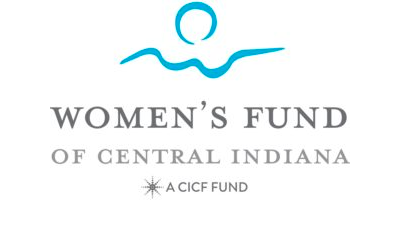Written by Courtney Cameron. Courtney is a Product Owner at KAR Global. She was an OPTIONS Class 19 participant and is currently a member of the Women’s Fund Engagement Committee.
On May 27, Women’s Fund donors and friends gathered for a Community Conversation adjusted by the Coronavirus pandemic to a very familiar Zoom webinar. Our topic of the day, resilience, provided moving stories of rising to the occasion in unforeseen circumstances. Leading with creativity and grace, our panelists provided insights into their business response to COVID-19. Their messages of hope are especially needed by our communities as protests for equal rights have reignited across the country. Conversations of many BIPOC (Black, Indigenous, and People of Color) and allies are now front and center, and this event proved an opportunity to add to our toolkit for moving forward.
Our panel of four trailblazing Indianapolis women, facilitated by Women’s Fund Executive Director, Jennifer Pope Baker, began with the powerful Women’s Fund mission statement: “Women’s Fund mobilizes people, ideas, and investments, so every woman and girl in our community will have an equitable opportunity to reach her full potential no matter her place, race, or identity.”
Tavonna Harris Askew, Vice-Chair, Women’s Fund Advisory Board and Chief of Staff and General Counsel for The Health and Hospital Corporation of Marion County described her start to the year, “For us it was very much a normal day in the life of a corporation.” Tavonna shared about early January plans, “we were cooking with gas.” March became chaotic as news and questions came into focus for the general public and healthcare systems needed to respond. Tavonna said she owned the title of “chaos coordinator” as her organization serves a variety of constituents. Protecting clients and employees was a balancing act for many of our panelists.
“It really brought our business to a screeching halt,” Cathy Miller of InCycle Cycling and Strength Studio shared candidly, as they closed their doors on March 16. Instructors and clients were offered bikes to members during the shutdown and the “InCycle shutdown survivor” page was activated on Facebook. InCycle taught over 300 free classes in nearly two months of closure. Clients who had moved away were taking virtual classes. “I really feel like we kept that connection and community through teamwork.”
“Proper closure of a restaurant takes days for physical assets and property – and we haven’t even begun to talk about the impact of our people,” said Martha Hoover of Patachou Inc. Restaurants are the largest private employer in the United States selling $900 billion per year and contributing over 1 trillion dollars to the economy – even more than the airline industry. “You can see by the sheer numbers why it’s important restaurants stay healthy and come back healthy,” Martha explained. Restaurant employees can be especially vulnerable, slipping through the cracks of established safety nets. Seven years ago, Patachou Inc. started an employee assistance program; the fund has distributed more than $90,000 since March to help employees pay for food, medication, and shelter.
“We had to change with the storm,” designer Codi Banks said, describing her adjustment from prom dress and fashion show season to fashionable face coverings. “Not only did I have a sense of pride that I was helping people stay protected, I was making money.” Business picked up to the point where additional staff was needed, with her mom, sisters, and aunts pitching in. “I’m happy that I was able to change it into a positive situation for me and my family and for protecting other people’s families.”
The inspiring hour closed with each panelist sharing how they have persevered in the area of emotional well-being. Tavonna emphasized recognizing when one needs a break and taking it, even in the moment. All panelists echoed that connections and spending time with loved ones were keeping them smiling. Before signing off, Jennifer shared this thought: “Joy gives people an understanding that things will be okay.”
